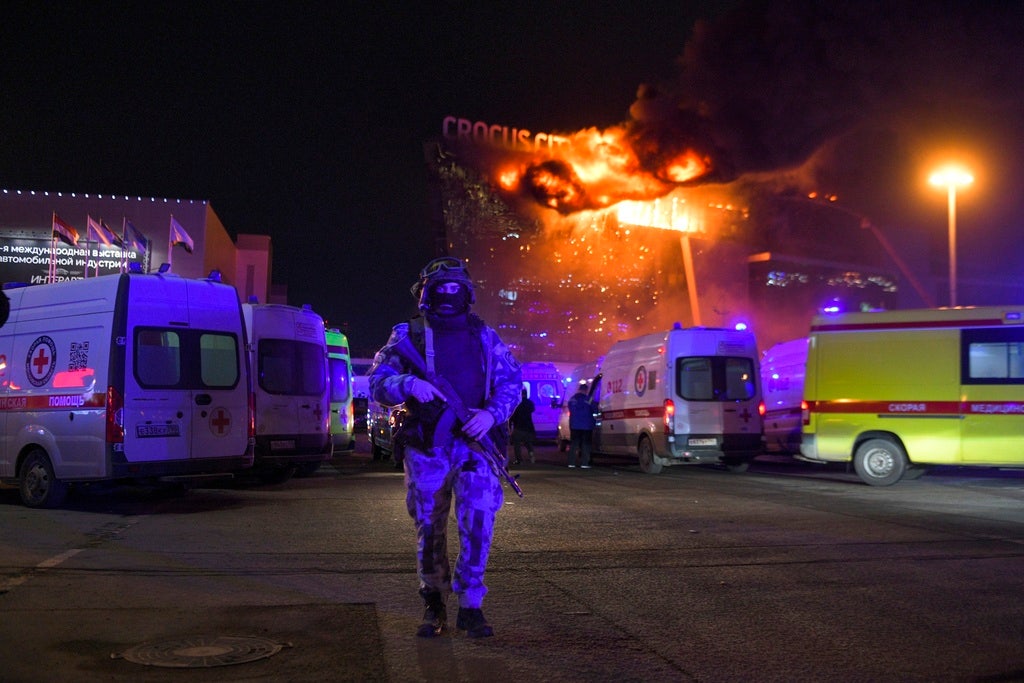Former U.S. Ambassador to Ukraine, John E. Herbst, expressed that last week’s terrorist attack at a Moscow concert hall, which claimed 139 lives, reveals a weakness in Russia’s security apparatus that contradicts Vladimir Putin’s strongman image. Herbst argues that Russia’s focus on the war in Ukraine has weakened its internal security, leaving it vulnerable to other threats such as terrorism. Luke Coffey, a senior fellow at Hudson Institute, also attributes the attack to Russia’s engagement in Ukraine, which has diverted national resources away from domestic security efforts.
Putin was quick to link Friday’s attack to Ukraine, despite later acknowledging that “radical Islamists” were responsible. He failed to mention that the U.S. had previously shared concerns about an imminent terror attack with Moscow, which he dismissed as an attempt to manipulate the upcoming presidential election. Further complicating matters, ISIS-K, an ISIS affiliate in Afghanistan, claimed credit for the attack. The four attackers, all Tajik nationals, were reportedly tortured during their interrogation, raising doubts about the validity of their statements.
Ivana Stradner, a research fellow at the Foundation for the Defense of Democracies, characterized the Kremlin as “fragile” and “unstable” following the attack. She suggested that the West should leverage this perception of weakness to counter Russia’s influence and allies. ISIS has long viewed Russia as an enemy due to its intervention in Syria, alliance with Iran, and support for the Taliban in Afghanistan. The group has carried out attacks in Russia’s volatile Caucasus region and other areas, recruiting fighters from Russia and the former Soviet Union.
The attack in Moscow highlights Putin’s vulnerability and raises questions about his ability to protect his people and allies. The West can capitalize on this perceived weakness by conducting information operations to undermine Putin’s authority and influence. Russia’s history of conflict with ISIS, including the downing of a Russian passenger plane in Sinai in 2015, has fueled the group’s enmity towards Russia. ISIS has targeted Russia for its collaboration with Assad in Syria, alliance with Iran, and support for the Taliban in Afghanistan.
The attack in Moscow underscores the challenges that Russia faces in maintaining security amid its military engagements in Ukraine and elsewhere. The country’s counterterrorism efforts have been strained by its focus on the conflict in Ukraine, leaving it vulnerable to attacks by groups like ISIS. The international community, particularly the West, can use Russia’s perceived weakness to diminish its influence and further isolate it from allies. As Russia grapples with internal security threats, it is clear that the country’s actions on the world stage have repercussions at home.


